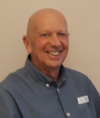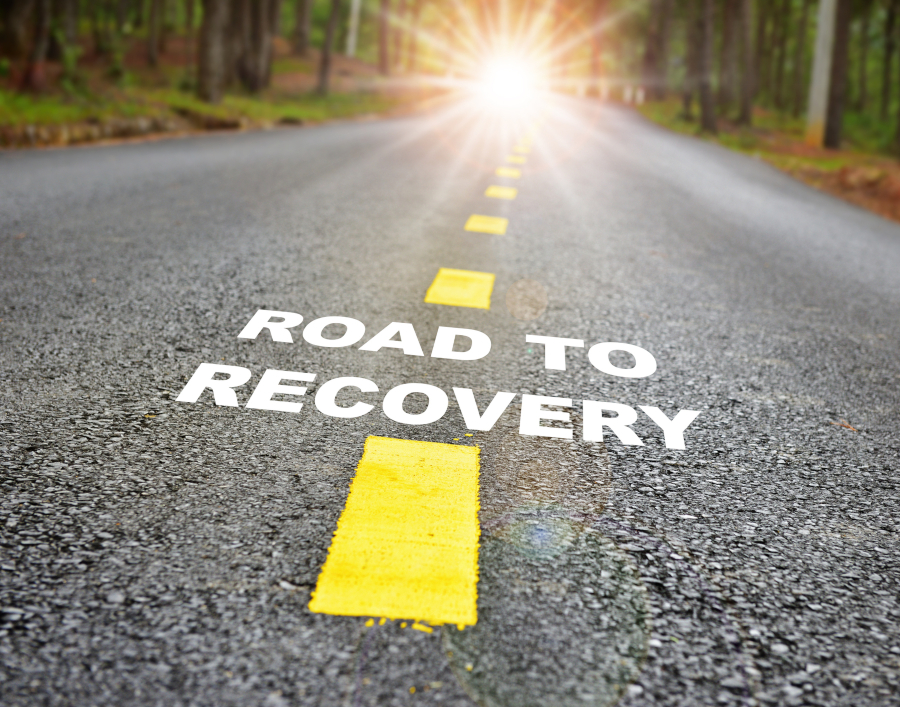Addiction Recovery Success
Posted on 03 June, 2021 in Help
The powerful combination of professional support and lived experience

People are the solution
I could explain all the processes, best practices and government guidelines that a rehab should follow, and how to implement them, but as I started to write this article my thoughts were clear about what makes a successful rehab work for each and every individual resident – it’s the interaction between people, the staff, the individuals with the addiction problem, and their families and friends.
This article is about addiction – why people go down this route in life and how professional staff who have also experienced the issues of addiction themselves are essential to the solution.
“I knew there was a problem for many years, I denied it to myself and everyone else, it only got worse, I didn’t trust anyone, and I didn’t know where to turn for support.”
Staff with personal lived experience of addiction and recovery who are working together with a common goal and a passion to help others is very powerful, it changes lives, and that is what is required to overcome addiction.
Obviously, someone’s personal experience needs to be complemented with the appropriate professional skills and clinical knowledge – staff who have their own experience to call on and the professional training are key.
Drugs and alcohol are not the problem
Recovery from addiction is not about the alcohol, drugs, gambling, sex or chocolate, it’s about identifying the issues that are causing an individual to want to use ‘something’ in the first instance – usually for emotional pain relief.
Removing the drugs or alcohol by safely detoxing someone in a rehab environment is just a small part of the treatment. It is relatively easy to complete the initial medically assisted detox aspect of a rehab placement, but the real solution and essential component of any rehab placement is the person focused rehabilitation support that follows the detoxification. That’s how we identify the root causes which have eventually resulted in the person’s use of alcohol or drugs to manage their emotions and feelings.
“Recovery from addiction is about the care, support and understanding that every staff member can give to the person with the problem and to show them how they can live again.”
It is essential that individuals are in a safe and trusted rehab environment when they start to address their root cause issues. At ESH Community we do this rehabilitation support after the detox with professional counselling, group therapy and education sessions.
People are at their most vulnerable and emotionally unstable directly after completing their detox, so just attending a rehab for detoxification doesn’t work. In our experience it’s essential that people with addiction problems must be in a safe, supported and protected environment when they start to explore their issues which led them into addiction.
If people are not separated from drugs and alcohol in a safe place and supported 24/7, when they try to address their root cause problems the emotions get too much, and they resort to the coping mechanisms of using alcohol or drugs as they have done in the past to deal with those very same emotions – they are then back in the problem again.
Who has addiction problems?
Let’s dispel some myths about the people who have addiction problems.
All staff members at ESH Community including myself have lived experience of addiction and are now professionals in their own right.
In my experience, people who have had addiction problems and are ‘in recovery’ are some of the most intelligent, brightest, sensitive, creative and caring people I know on the planet. I see this in the people I work alongside every day and I also see this, but masked by addiction, in all the people we support.
I use the terminology ‘in recovery’ because recovery is a lifelong process of learning about yourself, learning how to be the real and authentic you, and to be comfortable in your own skin.
“If you ask anyone who is in recovery from addiction what was the most difficult thing they ever had to do – the answer will almost certainly be – to ask for help.”
There are some common themes our residents talk about, it could be that they didn’t fit in from an early age, they didn’t like the society they had to live in, they wanted to change things but didn’t know how, they actually just acted their way through life being what they thought they should be in order to try to fit in. Generally, they just didn’t know how to deal with their emotions which may have been caused by specific life occurrences in the past, some of which they have held onto for years – ultimately it could be that their pride has never let them ask for help.
What is addiction and recovery?

Addiction is not about simply removing drugs or alcohol from a person’s life, it’s about getting to the root causes of what caused the need for the person to bury their emotions.
When someone starts to use drugs or alcohol at an early age to help block their feelings and emotions, they stop growing emotionally, they don’t develop the life skills or coping mechanisms, their emotional growth stops, they simply don’t grow up. We hear families and friends talking about their loved one saying they’re acting like a teenager – yes, they are!
They attempt to cope with all this by using drink, drugs or other escapes to temporarily relieve their angst and fear. A person’s addictive behaviours and tendencies then lead them straight to the belief that if a little bit of the temporary relief works, then more temporary relief will work better – that’s addiction!
It doesn’t matter what age, gender, religion, faith or education people have had, the problem is that people’s previous approach to life hasn’t worked for them, so their thinking, their values, the way they manage life, and how they handle emotions all need to change.
“ESH Community residential rehab is actually a school of unlearning.”
For the individual with addiction problems, and their families and friends, recovery is most definitely about effecting a change.
To put it bluntly, change is required because the way the person has attempted to cope with their life, usually over many years has resulted in the need to use drugs, alcohol, gambling etc. to manage and deal with their feelings and emotions, but this only provides temporary relief – recovery is about giving people a permanent and ongoing life solution.
Professional and experienced staff
A key aspect of anyone’s ongoing recovery from addiction is to help others who are on the same journey, giving something back, this rebuilds their self-esteem and uses their knowledge, skills and personal experience to the full.
“Other people who had a clearer vision than I did at the time opened my eyes and showed me there was a different way to live.”
In our experience the best and most effective addiction support comes from people who have experienced the problems of addiction themselves and who have found a solution and purpose in life. All our staff are living the principles of recovery on a daily basis in their own lives, helping and supporting others: they are the best teachers by example that you could possibly get.
People in recovery from addiction have a passion to help others, and when a person has a passion for something they are invariably good at what they do. The support and guidance provided by staff who have had an addiction problem themselves is essential.
Staff need the formal professional training in Health and Social Care, but there is no substitute for personal experience, and when this is combined with the professional expertise it’s a formidable combination.
“We can all be messengers of hope.”
— Satyadaya
I hope this has given you a new perspective of addiction and recovery based on our very real experience over the years.
People who have addiction problems are not bad, weak willed, or stupid, in fact in my experience they are extremely bright, intelligent, creative and caring individuals hidden behind their addiction. Just because they don’t fit with society’s prescribed model of what the perfect person should be and look like doesn’t make them bad people, they’re just misunderstood and have probably lacked and never developed the personal awareness and coping mechanisms to be able to deal with life!
Residential rehab placements are an opportunity for individuals to have some time in a safe place, to look at themselves and to consider their lives and futures with the help of other people who have done exactly the same.
I would suggest that when anyone is looking for a solution to a problem, they should look for support from people who have experienced the same problem themselves and found the solution.
About Paul Urmston
Paul Urmston is CEO and founder of ESH Works Ltd who operate ESH Community, a residential addiction treatment centre and rehab in Warwickshire where he is the registered manager.
He has worked closely with Public Health England and other peer led organisations across the country over the years to establish the concept of peer led recovery which is now accepted and promoted by the government as one of the most effective methods of treating addiction.
